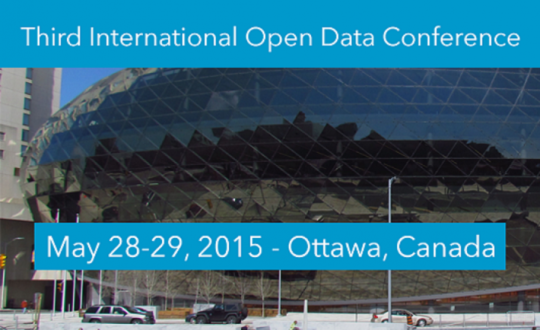This post originally appeared on NDI’s DemocracyWorks blog.

The Third International Open Data Conference in Ottawa last week brought together more than 1,000 open data advocates from a diverse array of countries and professional backgrounds to discuss open government and open data. Compared with the First International Open Data Conference – a small gathering of technologists at the World Bank in 2010 – the event’s growth constituted a clear statement that open data is here to stay and the global community of advocates is growing.
The conference demonstrated that the global open data movement has matured and is more focused on the relationship between open data, power and politics. Open data is most transformative and impactful when it improves the relationship between government and the public. Consider legislatures: when used appropriately, open data makes it easier for citizens to access information about the activities of their lawmakers, which helps build public trust and citizen engagement in government. Open legislative data can also empower citizens to effectively monitor and evaluate the performance of their legislature. Unequal access to public information can distort the relationship between citizens and their government; open data can help correct this, empowering broader participation and increasing accountability and understanding.